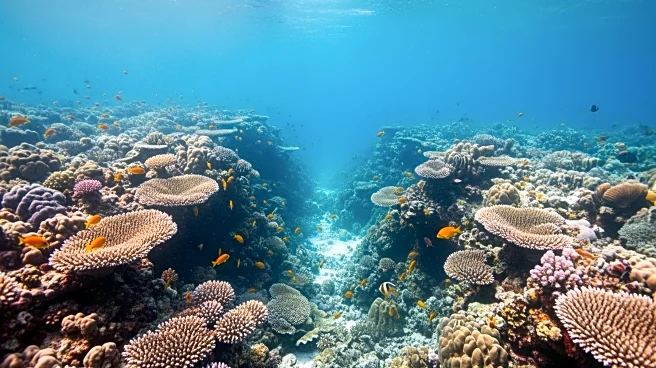What's Happening?
A new study from the University of Queensland highlights the precarious future of the Great Barrier Reef, predicting a 'rapid coral decline' by 2050. However, the study suggests that parts of the reef may recover if global warming is limited to below
2 degrees Celsius. The research involved modeling the lifecycles of coral species, revealing that some corals are better at adapting to warmer waters. The study emphasizes the importance of curbing carbon emissions to prevent a near collapse of the reef, which has already suffered significant bleaching events due to marine heatwaves.
Why It's Important?
The Great Barrier Reef is one of the world's most biodiverse ecosystems, and its health is crucial for marine life and the global environment. The potential recovery of the reef underlines the importance of international climate agreements like the Paris Agreement, which aims to limit global temperature rises. The study's findings could influence global environmental policies and conservation efforts, highlighting the need for urgent action to reduce carbon emissions. The reef's decline could have significant ecological and economic impacts, affecting tourism and marine biodiversity.
What's Next?
The study calls for immediate global action to reduce carbon emissions to allow the reef to adapt naturally to changing temperatures. Identifying resilient areas of the reef could help focus conservation efforts. The findings may prompt governments and environmental organizations to intensify their efforts in combating climate change and protecting vulnerable ecosystems.
Beyond the Headlines
The study raises ethical questions about humanity's responsibility to protect natural wonders like the Great Barrier Reef. It also highlights the potential for scientific research to guide policy decisions and conservation strategies. The long-term survival of the reef could depend on balancing economic development with environmental sustainability.















